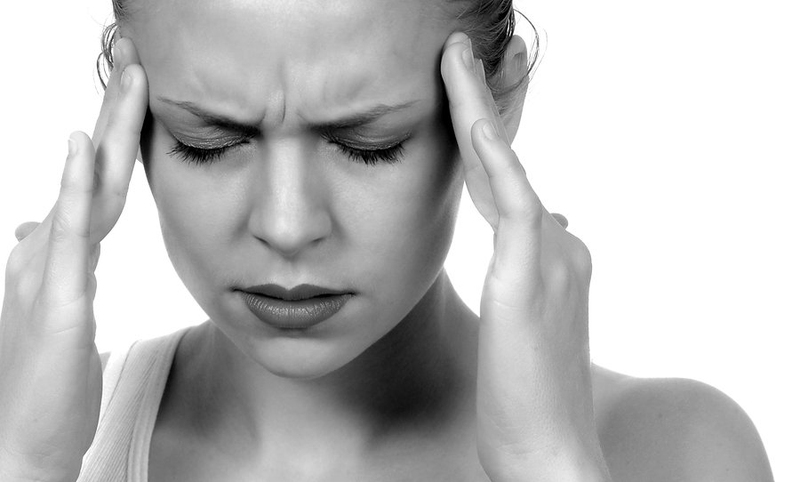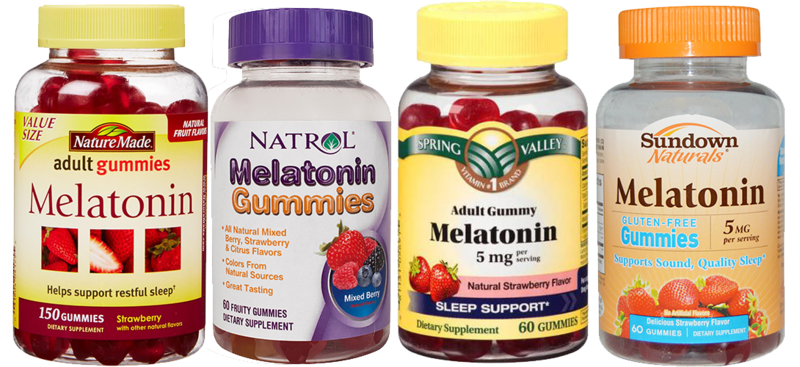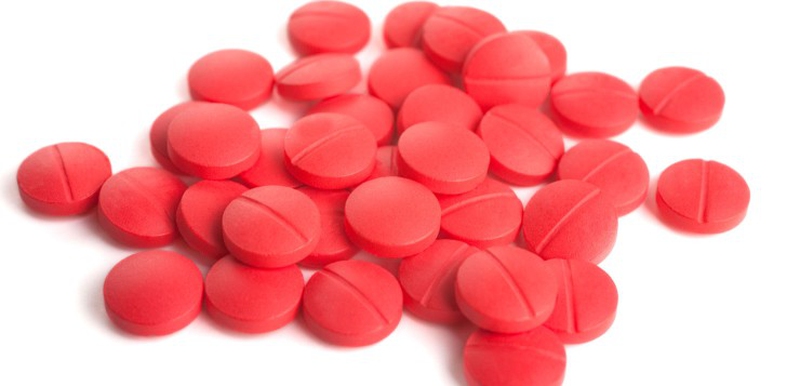Migraines are not like your regular headache. They cause severe pain, light sensitivity, sound sensitivity, nausea and even vomiting. When you suffer from a migraine, it can seriously hinder your ability to perform your daily task and waiting for them to subside can take hours or days. Knowing how to get rid of a migraine will allow you to get back on track more quickly than simply waiting it out. The next time you feel a migraine coming on, utilize these tips and tricks.

Tips to Get Rid of a Migraine
Through Diet
Improving your diet can help reduce the occurrence of migraines. The following foods can help relieve migraine pains.
Foods rich in omega-3s like salmon, sardines, seeds, and nuts will help lower inflammation and regulate blood flow.
Fresh fruits and vegetables high in magnesium and electrolytes can help relieve migraine pains. These components can help regulate blood flow as well as control muscles functioning. The antioxidants in fresh fruits and vegetables will reduce inflammation and help cleanse the body of toxins. Bananas, sweet potatoes, figs, almonds, spinach, yogurt and Swiss chard all contain a significant source of magnesium which if low, could link to migraine.
Lean proteins like grass-fed beef, poultry, and wild-caught fish can help eliminate migraines.
Vitamin B rich foods, especially B2 riboflavin, can help alleviate migraine tension. Foods rich in vitamin B include green leafy vegetables, beans, legumes, nuts, and seeds.
Additional, there are foods you want to avoid which can make your migraine worse or increase the chances of you suffering from migraines more often. How to get rid of a migraine? Avoid these things:
Sugar
Refined grains
Aged cheese
Pickled fish
Gluten or yeast products
Alcohol
Chocolate that contains phenylethylamine
Caffeinated beverages
Eggs
Artificial sweeteners
Prepackaged foods
Excess sodium
Processed meats
Fried foods
Lima beans
Snow peas
With Supplements
Some supplements may be able to decrease the frequency or severity of migraines. Consider taking one of the following supplements if you are looking for an answer to how to get rid of a migraine.
If you are unable to get the proper amount of Omega-3s, magnesium, or vitamin B2 from the foods you eat, consider taking a supplement instead. Omega-3 fish oil, magnesium, and vitamin B2 can all be easily found at any local pharmacy over the counter or health and fitness shops.
5-HTP. This amino acid can improve the serotonin levels in the body while reducing the occurrence and severity of migraines.
Feverfew. This herb can help improve many migraine symptoms including nausea, vomiting, and sensitivity to light.
Kudzu extract. With over 70 phytonutrients, Kudzu Extract is an herbal migraine remedy that can reduce the severity and frequency of migraines.
Melatonin. Used in moderation, melatonin is a supplement that can help you sleep better. Improved sleep is one way you can reduce the occurrence of migraines.
Butterbur. Butterbur supplements can be one of the most helpful ways to reduce migraine pain and prevent them from reoccurring. It serves as a beta blocker which prevents the blood vessels from spasming. It helps stabilize blood flow and reduce inflammation, which lessons many of the pains caused by migraines.
Capsaicin cream. Capsaicin nose spray or cream can be used to block the signals of pain from the nerves.
Change in Lifestyle
Change your environment. If you have a migraine already, the best thing to do is to change your environment. Turning the lights down or off, turning off the TV and computers, or wearing sunglasses can help reduce the pain brought on from light sensitivity. Keep your environment quiet to help fight off noise sensitivity as well. How to get rid of a migraine can also be done by simply resting for a bit. If possible, sit or lie down for about 30 minutes to reduce stress and reduce muscles tension.
Cool things down. Use cold compresses on the forehead and back of the neck to relieve muscles tension that can be causing your migraine. Additionally, taking a cold shower and massaging the scalp can help reduce tension. Keep your room cooler to keep the body cool and reduce inflammation.
Aerobic exercises. Aerobic exercises like walking, swimming, cycling or jogging can increase the blood flow in the body. Not only does it help promote blood circulation, exercise is also a great way to reduce stress.
Reduce stress. Stress is one of the most common causes of migraines, so it is important to have a routine that allows you to unwind and reduce stress on a daily basis. Doing yoga, meditating or muscles relaxation exercises regularly can help reduce stress significantly.
Additional Medications
Some medications can help relieve migraines, but you'll want to take these in moderation. Using medication to help treat your migraines more than ten times a month and you run the risk of making this condition a chronic issue. Taking liquid medication as opposed to pills can be more beneficial since they tend to absorb into the body much faster. Also, avoid any medication that contains caffeine which can make your migraines worse over time.
To get rid of a migraine, consider trying these medications:
Non-steroidal anti-inflammatory medications. These common medications can help reduce migraine pain. They help treat the inflammation causing the migraine as well as reduce pain.
Triptans. You'll need a prescription for this medication, but it is one of the most effective medications for treating migraines. If you have a history of stroke or heart attack, this, however, is not an option you'll want to use since it constricts the blood vessels.
Dihydroergotamine. Dihydroergotamine is a type of nasal spray but can also be found as an injection. These medications can reduce light sensitivity, nausea, and pain because it encourages the blood vessels in the brain to tighten.
Beta-blockers. While these medications are typically used to help treat high blood pressure, they can be effective to treat migraines as well. Since these drugs help improve blood flow, they can reduce the symptoms caused by migraines.
Anti-seizure medications. Migraines and epilepsy often are caused by similar brain reactions which is why some anti-seizure medications can bring migraine relief.
Tricyclic antidepressants. Serotonin often plays a major role in migraine occurrences. Tricyclic antidepressants help increase the release or this feel good chemical and regulates it.
Botox injections. Those who suffer from chronic migraines may benefit from Botox since these injections numb the facial nerves.




View All Comments /Add Comment